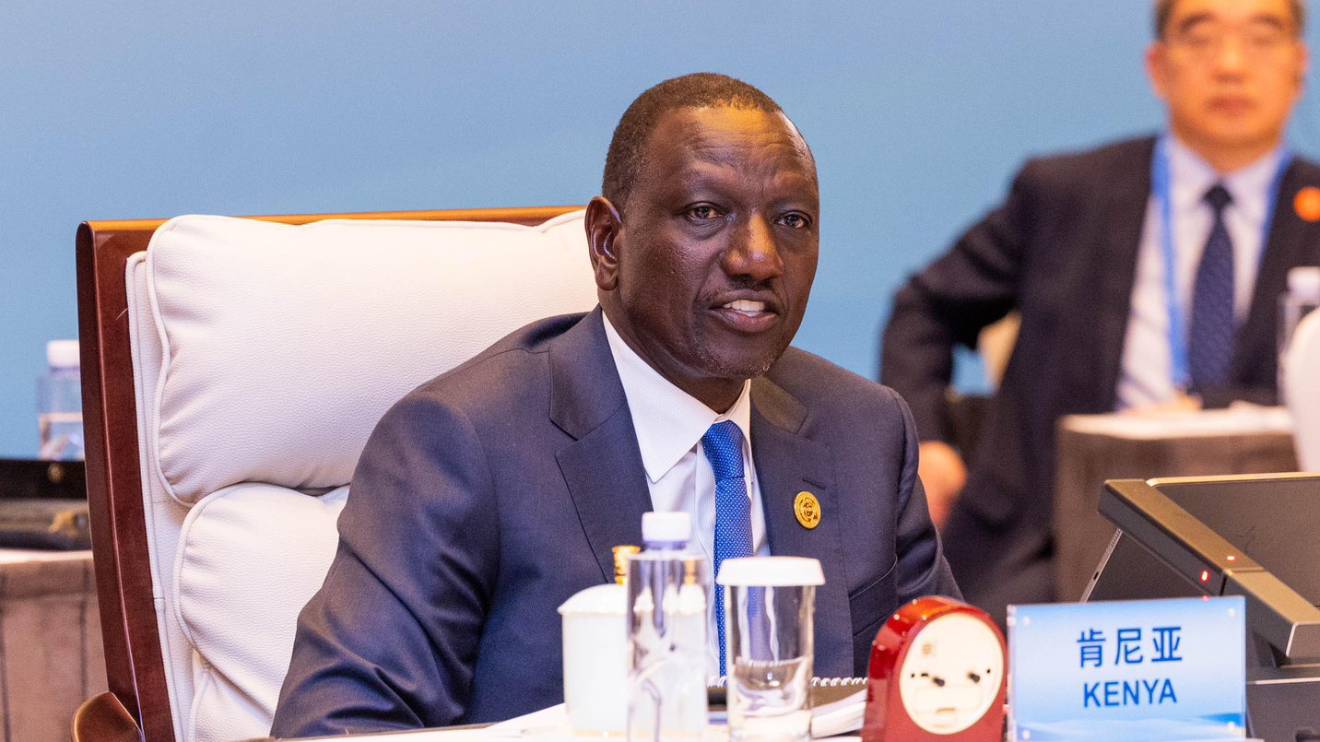In a passionate appeal for a stronger partnership between China and Africa, President William Ruto has called on China to step up its efforts to help African nations access crucial concessional financing, which could provide a lifeline to economies across the continent.
Speaking at the high-profile Belt and Road Initiative (BRI) meeting in Beijing, President Ruto urged China to spearhead efforts to boost multilateral development funding, particularly from institutions like the International Development Association (IDA) of the World Bank, which offers low-interest loans to developing nations.
“This will enable more African countries to access concessional funding. It will support economies that are heavily affected,” Ruto asserted, highlighting how affordable financing could unlock Africa’s vast development potential.
The President’s remarks came during a session he co-chaired with Chinese Vice-Premier Ding Xuexiang, under the theme: “Pursuing High-Quality Belt and Road Cooperation: A Platform for Modernisation Featuring Planning, Building and Benefiting Together.”
Ruto's message was clear—Africa needs more than just investment; it needs a complete overhaul of the global financial system, which he described as unjust to the Global South.
Read More
His call to action was for China to work hand-in-hand with Africa on “debt treatment,” including re-profiling existing debt by offering extended grace periods and longer repayment terms to ease the financial burdens on African nations.
He emphasised that reforming the global financial architecture was not merely a demand for fairness but a necessity for Africa's survival and growth.
"Africa is keen on reforming the African Union to consolidate its voice, sharpen its vision, and build greater consensus for the future," Ruto said, rallying African leaders to stand united in shaping the continent's future role on the global stage.
The event attracted an array of influential voices from across the continent, including Presidents Adama Barrow of Gambia, Lazarus Chakwera of Malawi, Brice Oligui Nguema of Gabon, Mohamed Younes Menti of Libya, and Al-Burhan Abdelrhman of Sudan.
The Chairperson of the African Union Commission, Moussa Faki Mahamat, also weighed in, stressing the significance of these collaborations for Africa’s development.
But Ruto didn’t stop there. He announced that African leaders would gather next month in Congo Brazzaville for a historic meeting aimed at establishing new benchmarks for assessing the continent’s real wealth—beyond outdated debt sustainability frameworks.
This bold move, he said, would create a more accurate picture of Africa’s economic potential, using real assets and natural wealth as key indicators.
The President wasn’t shy about the damage the current global financial system has caused to Africa’s progress.
He noted how slow development has dragged down Africa’s potential, stressing that reforming the way African countries are assessed on debt would bring about a more equitable and prosperous future for the continent.
Ruto also took the opportunity to praise China’s transformative role in Africa through initiatives like the Belt and Road Initiative, which he said had significantly enhanced Africa's connectivity, especially through essential infrastructure projects.
“In Kenya, the Belt and Road Initiative has significantly enhanced productivity in both rural and urban areas by facilitating efficient mobility and market access, and creating new opportunities for women and youth,” he added, crediting the initiative with playing a crucial role in lifting communities and opening new doors for millions.
The sweeping changes brought about by the Belt and Road projects, from transportation infrastructure to industrial opportunities, have created ripples across the continent.
Ruto pointed out that through projects like the Trans-Africa Highway Network, which spans nearly 70,000km and links regions, Africa has revolutionised its transport connectivity, with no country left behind.
Perhaps the most ambitious project he mentioned was the Standard Gauge Railway, which, upon completion, will connect major oceans and reduce the strain on road networks, boosting both regional and Pan-African integration.
“These projects will hasten its emergence as the green global industrial hub in coming years,” Ruto predicted, envisioning a future where Africa is not just a player but a global powerhouse in industries driven by clean energy and sustainable practices.
Ruto's call for China and Africa to “build and benefit together” is a clear signal of the continent’s ambition to not only rewrite the rules of global finance but to create a future where African nations can thrive on their own terms.
As China continues to deepen its ties with Africa, the potential for mutual growth is clear—but only if both sides work in true partnership to bring about lasting change.



 shares a light moment with the company's Group CEO Dr Patrick Tumbo (right) at a past event-1758121528.jpeg)
-1758116028.jpeg)



